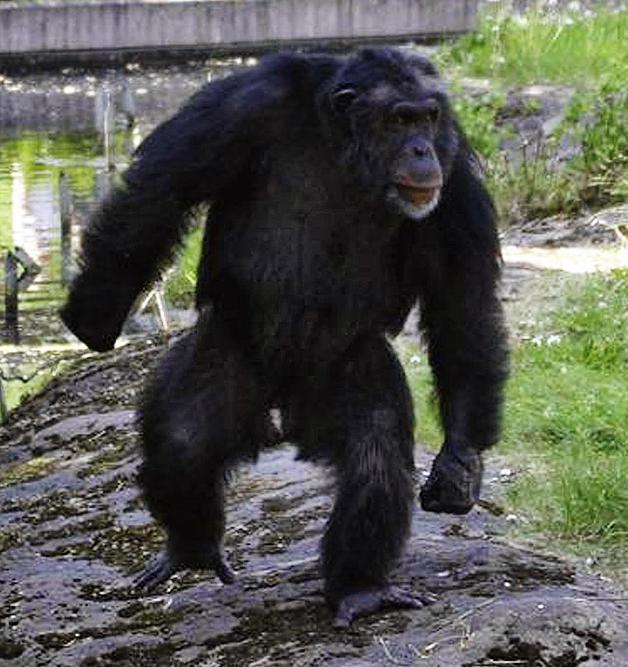A research team led by the University of Exeter has just discovered a group of chimpanzees in the Cantanhez National Park in Guinea-Bissau consuming alcohol.
Researchers had set up surveillance cameras in different areas of the park and observed several individuals sharing fermented African breadfruit, leading them to question whether the chimpanzees intentionally sought to consume this alcohol and why.
It has been about ten million years since our ancestors began metabolizing alcohol, and we continue to use it as our primary social lubricant. The recent discovery published in Current Biology suggests that chimpanzees may be doing something similar.
"We know that drinking alcohol releases dopamine and endorphins, which in turn leads to feelings of happiness and relaxation," stated Anna Bowland from the Centre for Ecology and Conservation at the Penryn Campus of Exeter in Cornwall.
"We also know that sharing alcohol, even through traditions like parties, helps to form and strengthen social bonds. Now that we know wild chimpanzees eat and share ethanolic fruits, the question is: could they be reaping similar benefits?" Bowland wonders.
Researchers used motion-activated cameras, capturing the chimpanzees sharing fermented fruits not just once, but up to 10 different occasions, indicating a fairly common behavior.
Breadfruit is round, with white sweet pulp and a texture similar to cherimoya. The fermented fruits consumed by the chimpanzees, as confirmed by the researchers, had a relatively low alcohol content, 0.61%. However, they also believe this could be just the tip of the iceberg, as between 60% and 85% of the chimpanzees' diet consists of fruits, suggesting that the cumulative effect of low alcohol levels in various fermented foods could lead to significant consumption.
Nevertheless, researchers find it highly unlikely that chimpanzees would get drunk, as this would clearly worsen their survival chances. The impact of alcohol on chimpanzees' metabolism is also unknown. However, recent discoveries of a molecular adaptation that significantly increased ethanol metabolism in the common ancestor of African apes suggest that the consumption of fermented fruits could have very ancient origins in species like humans and chimpanzees.
Ethanol has been abundant in nature for approximately 100 million years. Currently, there are 357,000 species of vascular plants and 325,000 species of flowering plants that produce easily fermentable sugars.
The individuals caught in the midst of an ethanolic feast appeared to share the fruit in groups. "Chimpanzees do not share food all the time, so this behavior with fermented fruit could be significant," notes Dr. Kimberley Hockings, also from the University of Exeter.
"We need to learn more about whether they deliberately seek ethanolic fruits and how they metabolize them, but this behavior could be one of the early evolutionary stages of 'feasting.' If so, the discovery suggests that the human tradition of celebrating may have its origins deep in our evolutionary history," Dr. Hockings points out.
